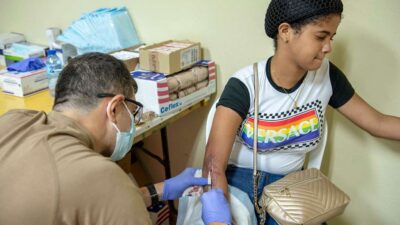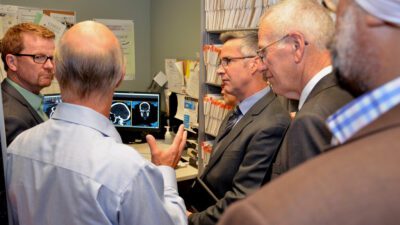Tuberculosis treatment in Pakistan remains a challenge due to high infection rates. Learn about symptoms, diagnosis, and government initiatives to combat TB.
Understanding Tuberculosis Treatment in Pakistan
Tuberculosis (TB) treatment in Pakistan is a significant public health concern due to the country’s high infection rates. With thousands of new TB cases reported annually, effective treatment and early diagnosis are crucial. The government, along with international health organizations, has implemented several programs to control the disease. However, challenges like drug resistance, lack of awareness, and inadequate healthcare infrastructure continue to hinder progress.
What is Tuberculosis?
Tuberculosis is a bacterial infection caused by Mycobacterium tuberculosis. It primarily affects the lungs but can also spread to other parts of the body. The disease is highly contagious and spreads through airborne droplets when an infected person coughs or sneezes.
Common Symptoms of Tuberculosis
- Persistent cough lasting more than three weeks
- Chest pain
- Coughing up blood
- Fever and night sweats
- Unexplained weight loss
- Fatigue
Current State of Tuberculosis in Pakistan
Pakistan ranks among the top countries burdened with TB, contributing significantly to global cases. According to the World Health Organization (WHO), Pakistan reports over 500,000 TB cases annually, making it a severe health crisis. Many cases go undiagnosed or untreated due to inadequate access to healthcare.
Tuberculosis Treatment in Pakistan
The National TB Control Program (NTP) in Pakistan provides free TB treatment across the country. The standard TB treatment consists of a six-month course of antibiotics. The two main treatment phases include:
1. Intensive Phase (First Two Months)
During this phase, patients receive a combination of Rifampicin, Isoniazid, Pyrazinamide, and Ethambutol to rapidly reduce the bacterial load.
2. Continuation Phase (Next Four Months)
This phase involves the administration of Rifampicin and Isoniazid to eliminate any remaining bacteria and prevent relapse.
Drug-Resistant Tuberculosis in Pakistan
One of the biggest challenges in tuberculosis treatment in Pakistan is the rise of multidrug-resistant tuberculosis (MDR-TB). MDR-TB occurs when TB bacteria become resistant to first-line antibiotics like Rifampicin and Isoniazid. The WHO and Global Fund have partnered with the Government of Pakistan to introduce second-line treatment options, which involve stronger and longer-duration medications.
Challenges in TB Treatment in Pakistan
1. Lack of Awareness and Stigma
Many TB patients in Pakistan avoid seeking medical help due to the stigma surrounding the disease. Misconceptions lead to delayed diagnosis and further spread of the infection.
2. Poor Healthcare Infrastructure
Rural areas in Pakistan have limited access to diagnostic facilities and treatment centers, making it difficult for patients to receive timely treatment.
3. Incomplete Treatment Adherence
Many patients stop taking medication once they start feeling better, which increases the risk of drug-resistant TB.
4. Malnutrition and Weak Immunity
Malnutrition, especially among the underprivileged population, weakens the immune system and makes individuals more susceptible to TB.
Government and International Efforts to Combat TB
National TB Control Program (NTP)
The Government of Pakistan, in collaboration with the World Health Organization (WHO) and Global Fund, provides free treatment, diagnostic tests, and awareness programs to control TB. Read more about NTP.
GeneXpert Technology
Pakistan has adopted GeneXpert machines, which detect TB bacteria in less than two hours. This helps in early and accurate diagnosis, reducing transmission rates. Learn more about GeneXpert.
Public-Private Partnerships
Several non-governmental organizations (NGOs) like the Indus Hospital TB Program and Greenstar Social Marketing work alongside the government to provide free screenings and treatment.
Preventive Measures to Control Tuberculosis
- BCG Vaccination: Ensuring newborns receive the Bacillus Calmette-Guerin (BCG) vaccine can provide protection against severe TB forms.
- Improved Hygiene: Covering the mouth while coughing and maintaining proper ventilation can reduce TB spread.
- Regular Screening: High-risk individuals, such as healthcare workers and people with weakened immune systems, should undergo regular TB screenings.
- Nutritional Support: A healthy diet boosts immunity and helps fight infections effectively.
Final Thoughts
Tuberculosis treatment in Pakistan faces numerous challenges, but with strong government initiatives and international collaboration, progress is being made. Spreading awareness, improving access to healthcare, and encouraging early diagnosis are key to controlling this infectious disease. If you or someone you know has symptoms of TB, seek medical attention immediately and complete the prescribed treatment to prevent drug resistance and further spread.
For more details on tuberculosis treatment and prevention, visit WHO’s TB Program.




